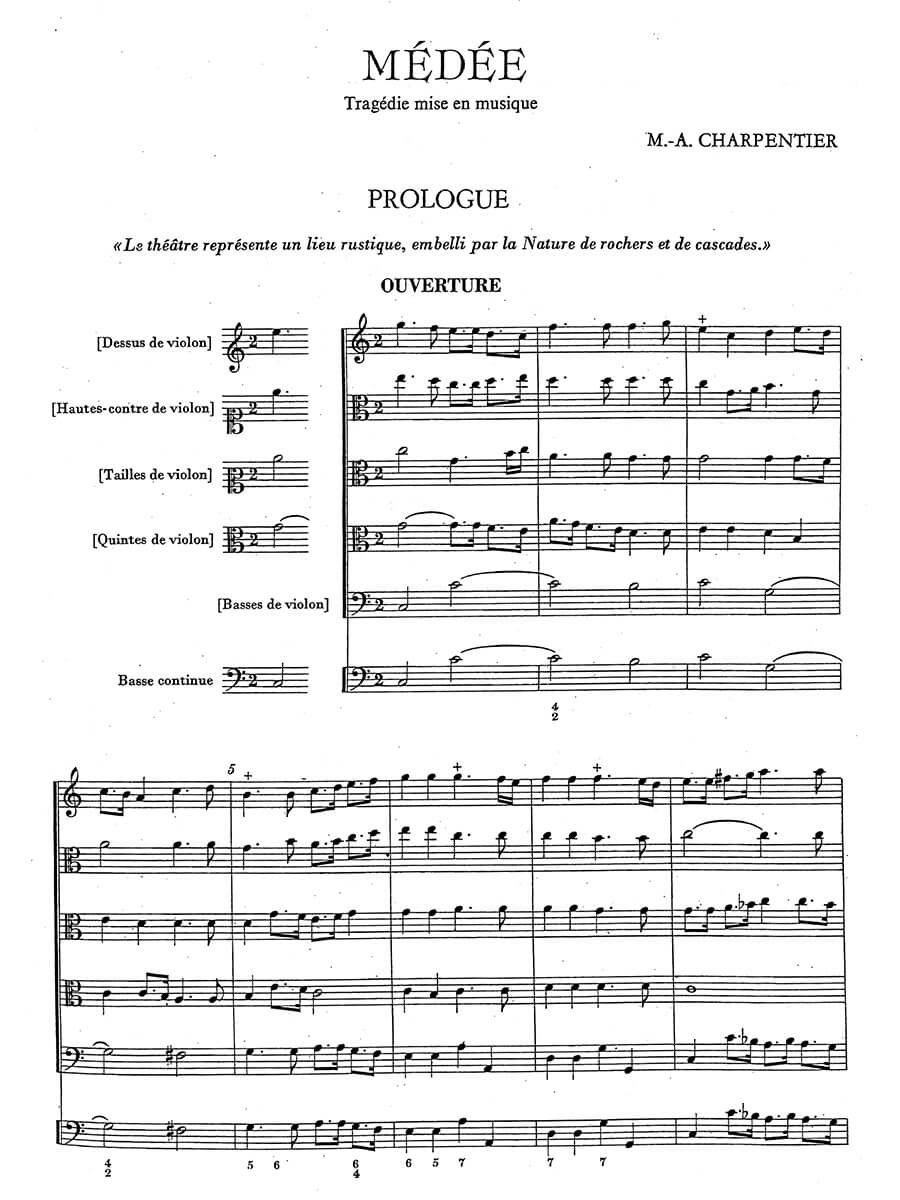Medée (Opera in two volumes with French libretto)
Charpentier, Marc-Antoine
80,00 €
Preface
Marc-Antoine Charpentier – Médée
(b. Paris, 1643 – d. Paris, 24. February 1704)
On 4. Dezember 1693, Médée premiered at the Palais-Royal in Paris. It was Marc-Antoine Charpentier’s first commission from the Académie royale de musique, and his only completed opera. The focus of the five acts is the Greek sorceress Medea and her time exiled in Corinth. Medea is most iconic for the tyrannical murder of her own children. The libretto of Médée by Thomas Corneille tells the story of how she came to kill them and several others in a jilted rage over Jason’s infidelity. Charpentier’s innovations in orchestration and harmonic complexity make this an underrated treasure which “could serve as a guide to 17th-century orchestration.” (Powell) Indeed, this opera is a great example of the high baroque throughout Europe because Charpentier represented multiple national identities. The opera was produced for only three months before its closure in March 1694, despite good reviews and high praise from the French royal family.
Background
One cannot tell the story of the premiere of Médée without drawing attention to the curious time in which this opera was commissioned, given Charpentier had never written an opera or collaborated with the Academy. The Academy was struggling to cope with the untimely death of Jean-Baptiste Lully, who composed copious successful operas. They could not find an adequate replacement who could sustain an opera audience for more than a few weeks or months. Parisians were still Lully fanatics who did not accept the wave of composers following his death.
Enter Charpentier, who was born and raised in France but received his compositional training from Giacomo Carissimi, so he was steeped in the Italian stylistic conventions and was therefore considered an Italian composer. Charpentier was already renowned for his sacred music, both instrumental and vocal. However, part of Lully’s success with the Parisian public was his strict Frenchness, despite his Italian heritage. The Academy commissioned Médée from Charpentier, but the bastion of Lullians remaining in Paris never accepted the opera, and public interest waned after only three months.
This cancellation came despite overwhelmingly positive reviews. The Royal family was impressed with the opera, and prominent critics extolled the piece in local publications. As mentioned, the public had a strict loyalty to Lully and this Italian sensibility had no place in their opera house. Another contemporary short-lived production followed in Lille, and opera companies revive the piece occasionally even today. …
Read full preface > HERE
Score Data
| Edition | Opera Explorer |
|---|---|
| Genre | Opera |
| Size | 210 x 297 mm |
| Printing | Reprint |
| Pages | 604 |
